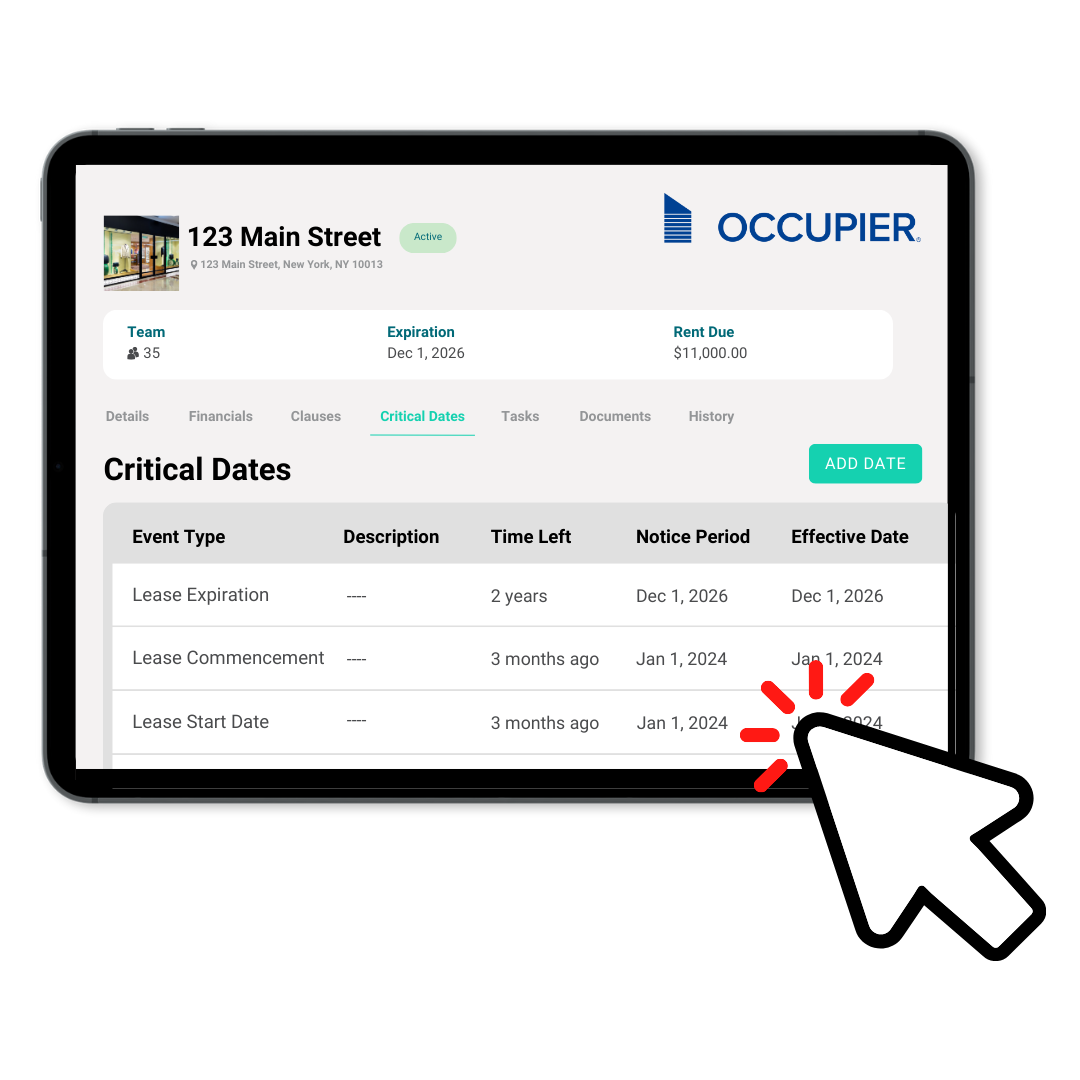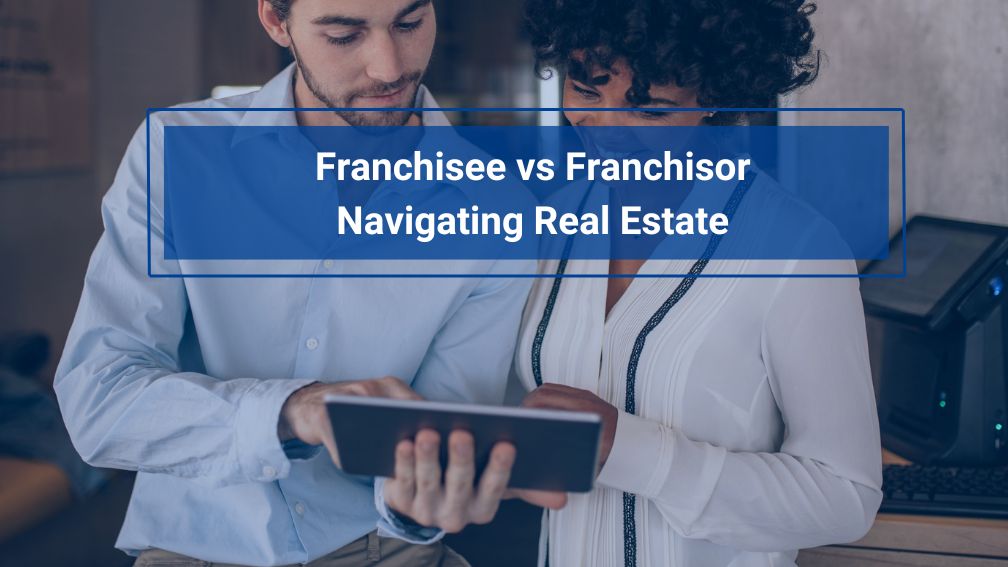Franchisee vs Franchisor: Navigating Real Estate in the Franchise World
Last Updated on August 29, 2024 by Morgan Beard
Have you ever stopped to consider the foundational nuances between franchisees and franchisors in the realm of real estate? This relationship, often complex and multifaceted, can significantly impact your strategy, decision-making process, and ultimately, the success of your locations.
In this comprehensive guide, we’ll delve into the roles of franchisees and franchisors, exploring how their interplay affects various aspects of real estate management. From site selection to lease negotiation and ongoing property management, we’ll uncover the challenges and opportunities that arise in this unique business model. Moreover, we’ll discuss how modern commercial real estate software is revolutionizing the way franchise networks handle their property portfolios.
Defining Franchisees and Franchisors
Before we dive into the real estate implications, let’s establish a clear understanding of these two pivotal roles in the franchise ecosystem.
A franchisor is the original business owner who grants the right to use their business model, branding, and operational systems to other entrepreneurs. They’ve developed a successful business formula and are expanding their reach by allowing others to replicate it. Examples include well-known brands like McDonald’s, Subway, or Marriott International.
On the other hand, a franchisee is an individual or entity that purchases the right to operate a business under the franchisor’s brand and system. They pay an initial franchise fee and ongoing royalties in exchange for the use of the franchisor’s trademark, operating systems, and support.
While this relationship can be highly beneficial for both parties, it also creates a unique dynamic when it comes to real estate decisions. The franchisor aims to maintain brand consistency and strategic growth, while the franchisee seeks to maximize their individual location’s profitability.
The Interplay Between Franchisees and Franchisors in Real Estate
The franchise model introduces a layer of complexity to real estate management that doesn’t exist in traditional corporate structures. Let’s explore how this relationship impacts key areas of real estate operations.
Site Selection
Site selection is perhaps one of the most critical aspects of real estate management in the franchise world. The choice of location can make or break a franchise unit’s success.
Typically, franchisors have a significant say in site selection. They often have dedicated real estate teams that have developed sophisticated models for predicting store performance based on various factors such as demographics, traffic patterns, and proximity to complementary businesses. These teams work to ensure that new locations align with the brand’s overall growth strategy and don’t cannibalize existing units.
Franchisees, while they may not have the same level of resources or expertise, bring valuable local market knowledge to the table. They often have a deeper understanding of the community, local competition, and specific site nuances that might not be apparent from a high-level analysis.
The most successful franchise systems have learned to balance these perspectives. They’ve developed collaborative processes that leverage the franchisor’s analytical capabilities and the franchisee’s local insights to make informed site selection decisions.
Lease Negotiation
Lease negotiation is another area where the franchisee-franchisor dynamic comes into play. In many franchise systems, the franchisee is responsible for negotiating and signing the lease, as they will be the ones operating the business and paying the rent.
However, franchisors often play a significant role in this process. They may provide guidelines, templates, or even direct support during negotiations. This involvement serves several purposes:
- Ensuring lease terms align with the franchise agreement duration
- Protecting brand standards through specific clauses (e.g., signage rights, exclusivity provisions)
- Leveraging the franchisor’s experience and bargaining power to secure favorable terms
Some franchisors take a more hands-on approach, negotiating master leases with property owners and then subletting to franchisees. This strategy can provide more control over site selection and lease terms, but it also increases the franchisor’s financial risk and administrative burden.
As a real estate executive, understanding these dynamics is crucial when dealing with franchise tenants. You may find yourself negotiating with a local franchisee while also addressing concerns from the corporate franchisor.
Lease Management
Once a lease is signed, the ongoing management of that lease introduces another layer of complexity in the franchise model. Franchisees are typically responsible for day-to-day compliance with lease terms, including timely rent payments, maintenance obligations, and adherence to use clauses.
However, franchisors often maintain some level of oversight to protect their brand and ensure the longevity of the location. This might include:
- Periodic site inspections to ensure compliance with both lease terms and brand standards
- Involvement in lease renewal negotiations
- Assistance with dispute resolution if issues arise with the landlord
For multi-unit franchisees or larger franchise systems, lease management can become a significant administrative challenge. This is where specialized commercial lease management software can play a crucial role, which we’ll explore in more detail later.
Challenges and Opportunities in Franchise Real Estate
The franchise model presents both unique challenges and exciting opportunities in the realm of real estate management.
Challenges:
- Balancing Control and Independence: Franchisors must walk a fine line between maintaining brand consistency and allowing franchisees the flexibility to adapt to local market conditions.
- Scaling Real Estate Operations: As franchise systems grow, managing a diverse portfolio of properties across various markets becomes increasingly complex.
- Aligning Incentives: The interests of franchisors (long-term brand growth) and franchisees (individual unit profitability) don’t always align perfectly, particularly in real estate decisions.
- Regulatory Compliance: Franchise relationships are subject to specific laws and regulations, which can impact real estate transactions and lease agreements.
Opportunities:
- Rapid Expansion: The franchise model allows brands to expand their physical footprint quickly by leveraging franchisees’ capital and local market knowledge.
- Risk Mitigation: By having franchisees take on lease obligations, franchisors can grow their brand while mitigating some of the financial risks associated with real estate.
- Local Market Insights: Franchisees provide valuable on-the-ground intelligence that can inform broader real estate strategies.
- Economies of Scale: As franchise systems grow, they can leverage their size to negotiate better lease terms, develop relationships with national landlords, and streamline real estate operations.
The Role of Commercial Real Estate Software
Commercial real estate software has become an indispensable tool for managing the complexities of franchise real estate. These platforms offer a range of features that can benefit both franchisors and franchisees:
- Centralized Lease Management: Keep track of all lease documents, key dates, and obligations in one accessible platform.
- Lease Accounting Compliance: Maintain lease portfolio compliance with FASB’s ASC 842 and IFRS 16.
- Financial Reporting and Analysis: Generate reports on occupancy costs, compare performance across locations, and forecast future real estate expenses.
- Site Selection Tools: Utilize demographic data, mapping features, and predictive analytics to identify promising locations for new units.
- Compliance Tracking: Ensure adherence to both lease terms and franchise agreement requirements across the entire portfolio.
- Collaboration Features: Facilitate communication between franchisors, franchisees, and other stakeholders involved in real estate decisions.
By implementing robust commercial real estate software, franchise systems can streamline their operations, reduce risk, and make more informed decisions about their real estate portfolios.
As a real estate executive working with franchise tenants, understanding these tools can help you better serve your clients and anticipate their needs. Consider recommending or even partnering with software providers to offer added value to your franchise tenants.
Navigating the world of franchise real estate requires a nuanced understanding of the relationship between franchisees and franchisors. By recognizing the unique challenges and opportunities this model presents, and leveraging modern technology solutions, you can position yourself as a valuable partner in your franchise tenants’ success. Whether you’re working with established franchise brands or up-and-coming concepts, your expertise in managing these complex relationships will be an invaluable asset in today’s competitive commercial real estate landscape.

Product Tour
Take a self-guided tour and see how the fastest-growing commercial tenants leverage Occupier for lease management & lease accounting.
